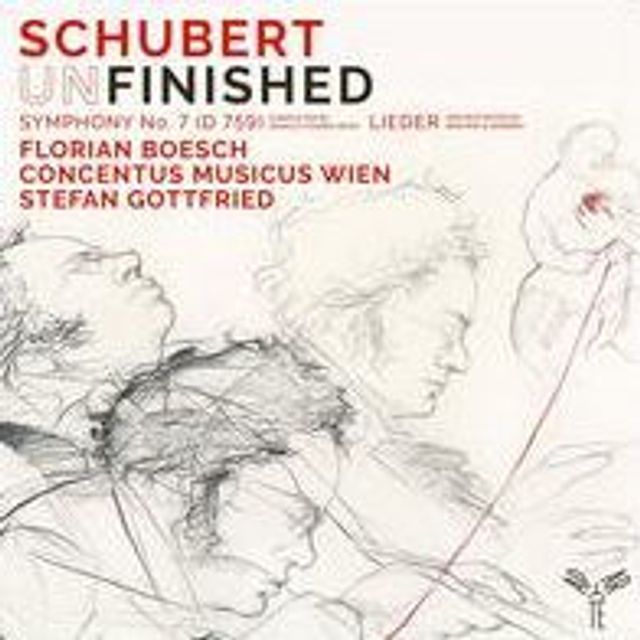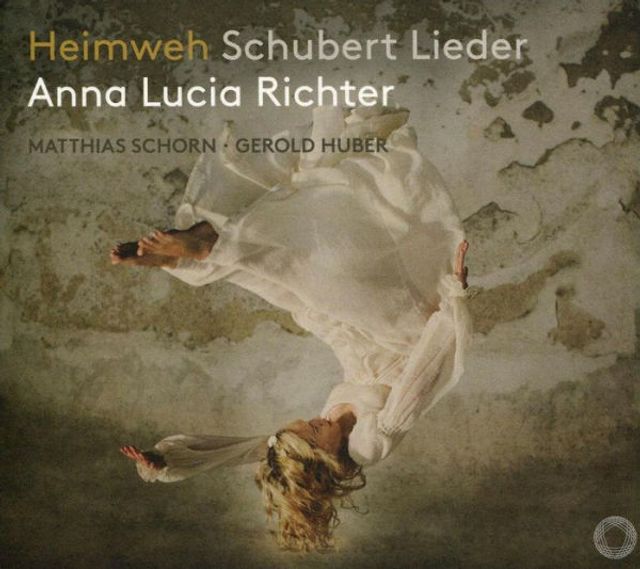Home
Schubert Revisited: Lieder arranged for Baritone and Orchestra
Loading Inventory...
Barnes and Noble
Schubert Revisited: Lieder arranged for Baritone and Orchestra
Current price: $16.99


Barnes and Noble
Schubert Revisited: Lieder arranged for Baritone and Orchestra
Current price: $16.99
Loading Inventory...
Size: OS
*Product Information may vary - to confirm product availability, pricing, and additional information please contact Barnes and Noble
The 19th century was full of transcriptions of orchestral works for smaller media, with audiences likely hearing chamber arrangements of symphonies more often than the originals. Transcriptions of voice-and-piano songs for orchestra, however, might well have seemed odd to listeners of that time, for there was no reason to replace the original forces with a more expensive and difficult-to-assemble setting. Here, baritone
Matthias Goerne
, arguably the king of the current
Schubert
scene, offers 19
songs, mostly quite familiar ones, in orchestral arrangements by pianist
Alexander Schmalcz
, and listeners' reactions may well depend on whether they find value in the exercise or evaluate it as a way for
Goerne
to line up lucrative orchestral-concert paychecks.
Schmalcz
is circumspect in his approach, not going beyond the notes that are in the songs and departing from simple string and wind textures only in songs that seem to call for a more dramatic approach. Sample
Erlkoenig, D. 328
, to hear one of those departures. Is the song improved by having the strings saw away in the ominous repeated notes of the piano accompaniment? That is for listeners to decide for themselves, but there is no question about
's voice; it is in fine form, its burnished tone in
fully intact, and he manages this vocal control while contributing to the direction of the
Kammerphilharmonie Bremen
. It is a virtuoso performance, and it may well bring more
orchestral
performances in the future. ~ James Manheim
Matthias Goerne
, arguably the king of the current
Schubert
scene, offers 19
songs, mostly quite familiar ones, in orchestral arrangements by pianist
Alexander Schmalcz
, and listeners' reactions may well depend on whether they find value in the exercise or evaluate it as a way for
Goerne
to line up lucrative orchestral-concert paychecks.
Schmalcz
is circumspect in his approach, not going beyond the notes that are in the songs and departing from simple string and wind textures only in songs that seem to call for a more dramatic approach. Sample
Erlkoenig, D. 328
, to hear one of those departures. Is the song improved by having the strings saw away in the ominous repeated notes of the piano accompaniment? That is for listeners to decide for themselves, but there is no question about
's voice; it is in fine form, its burnished tone in
fully intact, and he manages this vocal control while contributing to the direction of the
Kammerphilharmonie Bremen
. It is a virtuoso performance, and it may well bring more
orchestral
performances in the future. ~ James Manheim


















